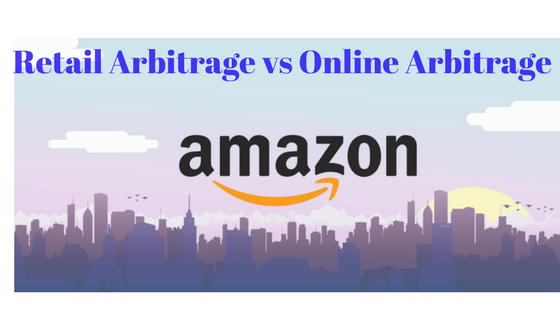What is Arbitrage?
Have you ever heard about Amazon retail Arbitrage? First lets what we mean when we talk about arbitrage. Arbitrage is a type of activity whereby a person re-sells products they have bought at a lower price for a profit. Before purchasing the products to sell, the re-seller researches the product sale price beforehand. They will work with multiple sources and suppliers, pay cash up front for the goods, and re-sell the goods typically within hours or a few days after the purchase.
There are two types of arbitrage.
- Amazon Online arbitrage
- Amazon Retail arbitrage
Retail Arbitrage
This type of arbitrage, the source of the goods is a brick and mortar shop. It could be a retail franchise, a store, or even a neighbour having a yard sale. The reseller spots an item and handles transportation and warehousing for it. This will, in turn, cause an increase in price at the point of re-sale due to overheads. Why you ask? From the transportation to storage to the cost of physically getting yourself to where you intend to do the purchase, you find yourself spending a lot of time and money, gas, etc.
There are cases though where you find this type of arbitrage working to your advantage. You can happen to find goods on sale in a store that doesn’t sell online. This means that were you relying solely on online buying of goods, you would have missed out on that opportunity.
Retail arbitrage is also ideal for those who like to move around and interact with people.
Retail arbitrage, however, isn’t the bulk of the kind of buying and selling that takes place on Amazon.
Online Arbitrage
Online arbitrage is preferred for its wider reach. You can purchase and resell goods online from any country in the world. All you have to do is go online, scout for goods being sold at a low price and find a market to sell them at a profit. You do not need to rely on walk-in buyers and the entire world becomes your market.
With online arbitrage, there are no overheads so if you are dealing only with online goods, you stand a chance to make a tidy profit. Sourcing your goods from sites like Alibaba, for example, will give you the advantage of buying in bulk at very low prices. For a good profit, you can then resell these goods.
The thing to realize here is that knowing the market prices in different places, and I mean knowing them really well, is key. You could find a painting for example that sells at 10$ in China yet in the USA it sells at 20$. That means you can purchase these paintings and sell them in the USA and make 10$ a piece. All you need to know is the profit you stand to make and of course the goods that will move fast. Just like that, you land yourself a handsome profit. The mismatch in price in different markets works to your advantage.
Online arbitrage is also advantageous in that you do not need to visit the stores personally. This saves you time and money and you cover much larger ground universally this way. It doesn’t limit you to a certain geographical area.
Pros and Cons of Retail Arbitrage
Pros
- You can get more done faster thus getting you further just by forming relationships with store managers.
- It allows you better one-off finds that would otherwise be unavailable for example at a clearance sale
- You may find deals that have less of a chance of being flooded with sellers.
- A very fast turnover of inventory
- You have access to regional deals
- Negotiating for better deals is possible
- You get to interact with people
- You may find that the goods are of higher quality
Cons
- Very time consuming
- Less efficient on scanning items
- More expenses are involved, bringing the cost up.
Pros and Cons of Online Arbitrage
Pros
- You have access to a lot more merchandise at your fingertips
- You are able to find unique merchandise
- More back-end margin potential with online shopping portals and coupons
- You can scan through thousands and thousands of goods in just one day
- Sometimes you may find better deals online
- You never have to actually touch an item
- There’s a huge variety of goods available to choose from
- You can shop in the comfort of your home
- You do not have to deal with or interact with people
Cons
- You cannot negotiate prices
- You do not interact with people
- It takes up to 2-3 weeks before the product goes live on Amazon
- You must have stable power and a stable internet connection
- Orders can be cancelled afterwards with no warning
There are many people use both RA and OA. Keep yourself up to date with the Amazon policy changes and find out which type of arbitrage will boost your turnover. Whichever one you choose, start small investing not more than what you are willing to lose. Do this till you know the kind of volume and turnaround you can keep up with. Make sure your items are authentic and that you can freely sell them without being an authorized dealer.
